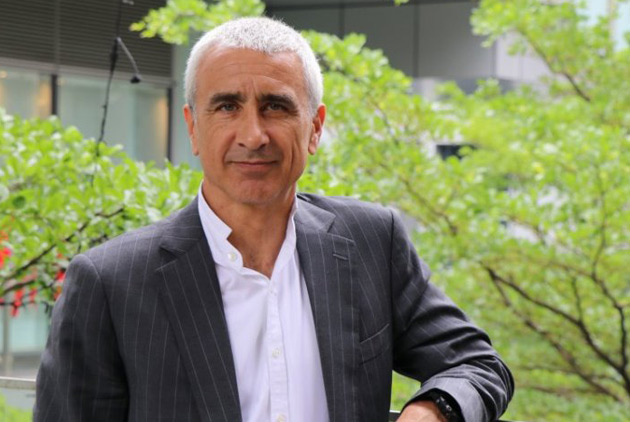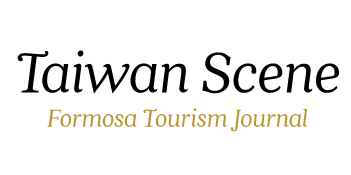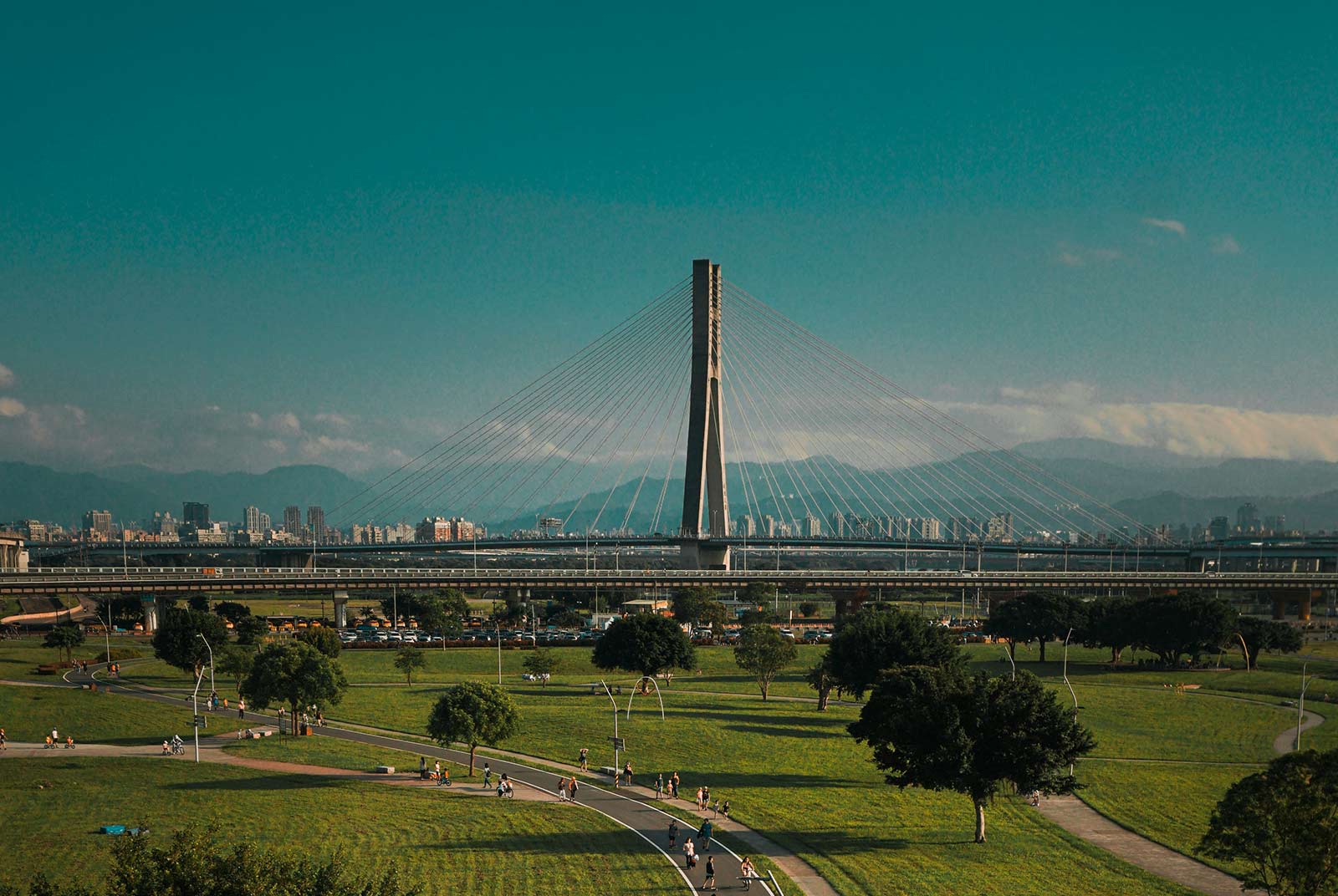Voices From Taiwan
Health is the Greatest Wealth: A Conversation with Peter Kurz

Source:Taiwan Scene
Over the past several years, Peter Kurz has become known in Taiwan for more than financial acumen. An accomplished triathlete, Kurz regularly performing feats of strength and endurance that would put most anybody (myself included) to shame, including long distance cycling races, off road marathons and more. I was curious as to what led Peter into the world of extreme athletics. But as he put it, his current fitness regiment wasn’t the result of some sort of mid-life epiphany, but more an evolution from a lifestyle in which exercise played a peripheral role into one in which exercise had become the lifestyle itself.
Views
Health is the Greatest Wealth: A Conversation with Peter Kurz
By Taiwan Sceneweb only
Peter Kurz and I meet for lunch at a restaurant in the shadow of Taipei 101, a place serving western business-style lunches. It’s an appropriate venue for two long-time Taiwan expatriates. Our meals – a chicken salad for Peter, and a turkey melt for me – are seemingly appropriate choices for men of a certain age, men for whom health has become more important than culinary novelty.
If the name Peter Kurz doesn’t ring any bells, chances are you’re not deeply invested in Taiwan’s financial sector, the world in which Kurz has made a name for himself over the past three decades as an investment guru, earning the nickname “Mister Taiwan” in the process. (And on the subject of names: In the name of journalistic disclosure, I worked for Peter Kurz as an editor at his company MrTaiwan.com in the early 2000’s.)
But this article isn’t about financial matters, so if you’re looking for investment advice from Mister Taiwan (or, heaven help you, from me) you should look elsewhere. My sensible-lunch discussion with Peter wasn’t about finance, but fitness.
Over the past several years, Peter Kurz has become known in Taiwan for more than financial acumen. An accomplished triathlete, Kurz regularly performing feats of strength and endurance that would put most anybody (myself included) to shame, including long distance cycling races, off road marathons and more.
I was curious as to what led Peter into the world of extreme athletics. But as he put it, his current fitness regiment wasn’t the result of some sort of mid-life epiphany, but more an evolution from a lifestyle in which exercise played a peripheral role into one in which exercise had become the lifestyle itself.
The Evolution of an Athlete
“I had a mild workout routine back when you were working for me,” says Kurz. “I went to the gym a few times a week. I remember running three kilometer was about the most I could handle. But at some point, thanks to a good deal of support from various people close to me who’d also become interested in physical fitness, I gradually got more and more into pushing myself further and further.”
Though he says he doesn’t consider himself a triathlete, Kurz’s reputation (and Strava profile) says otherwise. Not to mention having ridden a number of times (falling only slightly short of the official qualifying time of 6.5 hours) Taiwan’s notorious King of the Mountain race, considered by most professional bicycle racers as among the most grueling routes on the planet. And, just for a lark, doing the Taipei 101 Run Up.
But as the saying goes, no pain, no gain. And as Peter tells his story it becomes clear he’s had his share of both.
“So running was really my first major sport, but at some point my knees started to hurt from running, so I switched to swimming. I was doing that for a while, swimming every day, same style, same stroke (the crawl). After a while, I started getting a pain in my neck. Great, I thought, now I have to quit swimming. But my wife advised me that I should take lessons from a professional coach, which actually made me angry at first. But I listened to her, and it turned out I’d been doing it wrong.”
Kurz pauses for a moment from story and salad to demonstrate the slight variation in head-turning technique that meant all the difference.
“After changing my technique, I realized that maybe I needed to start taking things more seriously, concentrating on form. So now I was swimming, and I’d gone back to running. Shortly afterwards I started cycling, and got really into it, riding for both fun and training. Still, running is definitely the best way to burn fat. You’ll see fat cyclists, but you’ll never see fat runners.”
According to Peter, the keys to training lie in respecting the process.
“It’s about knowing what to eat in the days leading up to the race, and on the day of the race itself,” he says. “You need to learn how and when to stretch, never cold and with the understanding that you’re stretching today for tomorrow’s workout. There are so many subtleties to a good workout regimen. But on a deeper level, my training has led me to understand that pain is just another part of the process.”
Though a cyclist myself, I’m somewhat averse to pain. Not to mention getting up at 4:30 in the morning, riding more than 100 kilometers in a single day, or running for any reason not involving chasing something or being chased.
I ask Peter what motivates him to push himself so hard.
“Well, there’s definitely an element of vanity involved. Anybody who’s seriously into fitness who denies that part is probably lying. Keeping physically fit is a big part, of course. But ultimately this lifestyle makes me incredibly happy, and that’s the main reason I’m so into it.”
Mirroring Taiwan’s Transformation
Though it may be a stretch, I find Peter’s own personal transformation from investment guru to fitness guru (though make no mistake – his investment guru services are as in demand as ever) mirrors on a macro level a change in Taiwan itself.
“When I first came to Taiwan in the 90s, the zeitgeist was about getting rich, whereas now the definition of success seems to have changed from having a life filled with material wealth to one filled with time to enjoy leisure activities.”
Peter agrees with the observation.
“I was just having this conversation with a running friend of mine,” he says. “We’ve gone from the days when a business meeting could be a two-martini lunch to today, when you’re as likely to meet business partners at the gym or on the bike trail. In some ways, just like a business meeting used to be an excuse to drink or whatever, it’s now become an excuse to exercise. Much healthier, I think.”
Even our own lunchtime restaurant meeting is a bit of an anomaly.
“I usually train during my lunch break, but I’m recovering this week from an ultra trail run I just did in Jiaoxi, in Yilan county. 32 kilometers, 2000 meter elevation gain. Very, very muddy. It took nine hours, but the weather was cool. It was a good run. I felt great afterwards, but yeah, I could use some downtime now.”
Cycling and Hiking in Taiwan
The conversation moves back to cycling, as I ask Peter what some of his favorite riding spots are around the island.
Well, I’ve ridden to some beautiful, very out of the way places. Nanheng (the Southern Cross Island Highway) is one of them, but you can only ride the road part way. Beiheng is awesome as well, and has the benefit of being ride-able as a day trip from Taipei.
The road Peter refers to is the Northern Cross Island Highway, and calling it a day trip is something of a stretch for anyone not endurance athlete caliber.
“Well, it’s a long day,” Peter concedes. “Still, some of my favorite rides are in and around the Taipei area. Pingxi, for example. is a great ride. Even the riverside paths are pretty nice.” (Read: Circle Taiwan With a Bike – A New Trend for Japanese)
Mountaineering is another of Peter Kurz’s passions. Most of the places that Peter lists as among his favorite hiking spots – the high peaks of Shei-Pa National Park, Wuling and Dabajianshan would be difficult for casual hikers to visit, as Taiwan’s permit system requires visitors to apply for permits to hike that far in the bush. Though some have complained about the bureaucracy inherent in the permit system, Peter feels the system is fundamentally a good one. (Read: Climb Every Mountain)
“There’s a lot of traffic in these places, which are really sensitive areas. We need to have the ability to draw people in in a regulated way at the right place without spoiling places due to overuse.”
The business potential of a green-friendly island
As we discuss Taiwan’s landscape, scenic beauty and surprising amount of unspoiled wilderness (which the rest of the world finally seems to be discovering), our conversation turns for the first time to something mildly approaching business.
I’ve been saying for years that nature can be one of Taiwan’s greatest assets, and if we can successfully built on this green island image we’re currently nurturing. Besides the obvious benefits in the tourism sector, if we want to develop a food or drug export industry looking to sell to the China market…or wherever else, really….there’s a premium attached if Taiwan can position itself as a clean, organic friendly island. So really, one of our greatest exports could be ourselves.”
But exporting himself from this green island doesn’t seem likely. While many expats – even long-term residents with identities and careers intimately tied to Taiwan eventually wind up returning to native soil for their twilight years, Peter has no such plans, either to return full time to the States or, for that matter, to have twilight years at all.
“I’ve been here in Taiwan 30 years now, and I think that I could see myself living in Taiwan for the rest of my life. There are very few places in the United States where I could have access to the softer side of living, the convenience of Taiwan, while also having access to nature the way I would living in Taipei. So why would I leave?”
“You can’t take it with you”
Our sensible meals long consumed, I ask Peter for some final thoughts, a coda with which to summarize if not his philosophy on life, at least our conversation. He pauses for a minute.
“If you spend all your time making money, what’s the point of it? You’ll have missed all these opportunities to experience these beautiful places and spend time with amazing people. Money can’t buy health, and when all is said and done, you can’t take it with you.”
Additional Reading
♦ Bank Chairman Quits for His Father's Long-Term Care
♦ Climb Every Mountain
♦ Taiwan’s Marathon Tourism: Running the Gamut from Mountains to Sea

Taiwan Scene is the online journal of Taiwan Scene.
We publish stories introducing readers to the culture, scenery and travel possibilities of our homeland, articles to help travelers make the most of their time in Taiwan, and occasional interviews with movers and shakers from Taiwan’s ever-expanding creative scene.
Prolonged exposure to Taiwan Scene may instill in readers a profound desire to experience Taiwan personally. If these cravings persist, please contact us immediately.
Original content can be found at the website of Taiwan Scene.
♦ Health is the Greatest Wealth: A Conversation with Peter Kurz
This article is reproduced under the permission of Taiwan Scene . It presents the opinion or perspective of the original author / organization, which does not represent the standpoint of CommonWealth magazine.







